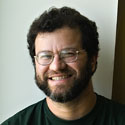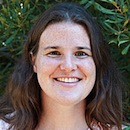Advisory Board and Editors Genomics

Andrew L Eamens
Dr Andrew Eamens joined the School of Health at the University of the Sunshine Coast as a Lecturer in Biomedical Science in 2022. Prior to joining the University of the Sunshine Coast, Andrew held teaching or research positions at the University of Queensland, University of Newcastle, University of Sydney, University of York, and CSIRO Agriculture and Food.

Scott V. Edwards
Alexander Agassiz Professor of Zoology and Curator of Ornithology in the Museum of Comparative Zoology and Professor of Organismic and Evolutionary Biology, Harvard University. President, Society for the Study of Evolution (2011-12); President, Society of Systematic Biologists (2007); President, American Genetic Association (2011). Elected Fellow, American Association for the Advancement of Science (2009); American Academy of Arts & Sciences (2009); Member, National Academy of Sciences (2015).

Luis E Eguiarte
Professor of the Evolutionary Ecology Department at the Institute of Ecology of the National Autonomous University of Mexico (UNAM).

Jonathan A Eisen
Full Professor, University of California, Davis (Depts. of Medical Microbiology and Immunology and Evolution and Ecology) and Adjunct Scientist DOE Joint Genome Institute.
Obsessed with microbes, the Redsox, open science, and STEM diversity.

Mohamed A. El-Esawi
Dr. Mohamed A. El-Esawi is Professor at Faculty of Science, Tanta University, Egypt. Dr. El-Esawi received his BSc and MSc from Tanta University, and his Ph.D. degree from Dublin Institute of Technology, Technological University Dublin, Ireland. After obtaining his Ph.D., Dr. El-Esawi joined the University of Warwick in the United Kingdom, University of Sorbonne in France, University of Leuven (KU Leuven) in Belgium and University of Cambridge in the United Kingdom as a visiting research fellow. His research focuses on genetics, molecular biology, environmental health and safety, environmental stress, biotechnology, molecular physiology, developmental biology, and bioinformatics. He has authored more than 150 international peer-reviewed articles, book chapters, books, and patents, and has participated in more than 70 conferences and workshops worldwide. Dr. El-Esawi has received several grants and international awards and recognition, including the Plants 2021 Young Investigator Award (MDPI, Switzerland). He has been ranked among the world's top 2% Scientists by Stanford University in USA, and is currently involved in several research projects.

Richard D Emes
Professor of Bioinformatics at Nottingham School of Veterinary Medicine and Science and Director of the University of Nottingham Advanced Data Analysis Centre.
Research interests are in bioinformatics, comparative genomics and molecular evolution particularly in the fields of pathogen biology, epigenetics and neurobiology.

Scott Emrich
I received a BS in Biology and Computer Science from Loyola College in Maryland and a PhD in Bioinformatics and Computational Biology from Iowa State University (ISU). Upon graduation, I received a ISU Research Excellence award and the university-wide Zaffrano Prize for Graduate Research. Starting after graduation in 2007 I spent the first ten years of my career at the University of Notre Dame, and now am an Associate Professor at the University of Tennessee (Knoxville). My research interests include genome-focused bioinformatics, parallel and distributed computing, and the intersection of biological applications and second and third-gen sequencing. Nearly all of my research has been funded by the National Institute of Health (NIH).

Barbara E. Engelhardt
Senior Investigator at Gladstone Institutes, Professor of Biomedical Data Science at Stanford University. My group develops statistical models and methods for high-dimensional genomic data, modeling human genetic variation and its impact on gene expression and splicing, with the goal of identifying mechanisms of human disorders and diseases.

A. Murat Eren
I am a computer scientist and a microbial ecologist. I develop algorithms and software platforms to make sense of the ecology of microbes through marker genes, metagenomes, and metatranscriptomes.

Marcial Escudero
Assistant Professor of Plant Biology and Ecology, University of Seville (Spain). Past postdoctoral researcher at Doñana Biological Station (CSIC, Seville, Spain), at the Field Museum of Natural History of Chicago (Illionois, USA) and at The Morton Arboretum (Lisle, Illinois, USA). Past PhD student at University Pablo de Olavide (Seville, Spain).

Brant C Faircloth
Associate Professor of Biological Sciences at Louisiana State University and Research Associate as the LSU Museum of Natural Sciences. Research interests include population and evolutionary genomics of non-model organisms; community genomics; genotype-phenotype interactions; (immuno-)genetic basis of mate choice; mating behavior; social behavior; and natural history.

Jorge MO Fernandes
Professor in Genomics and Molecular Biology. My main research interests are antimicrobial peptides, microRNAs and the epigenetic regulation of myogenic gene networks by environmental factors, such as temperature and photoperiod.

